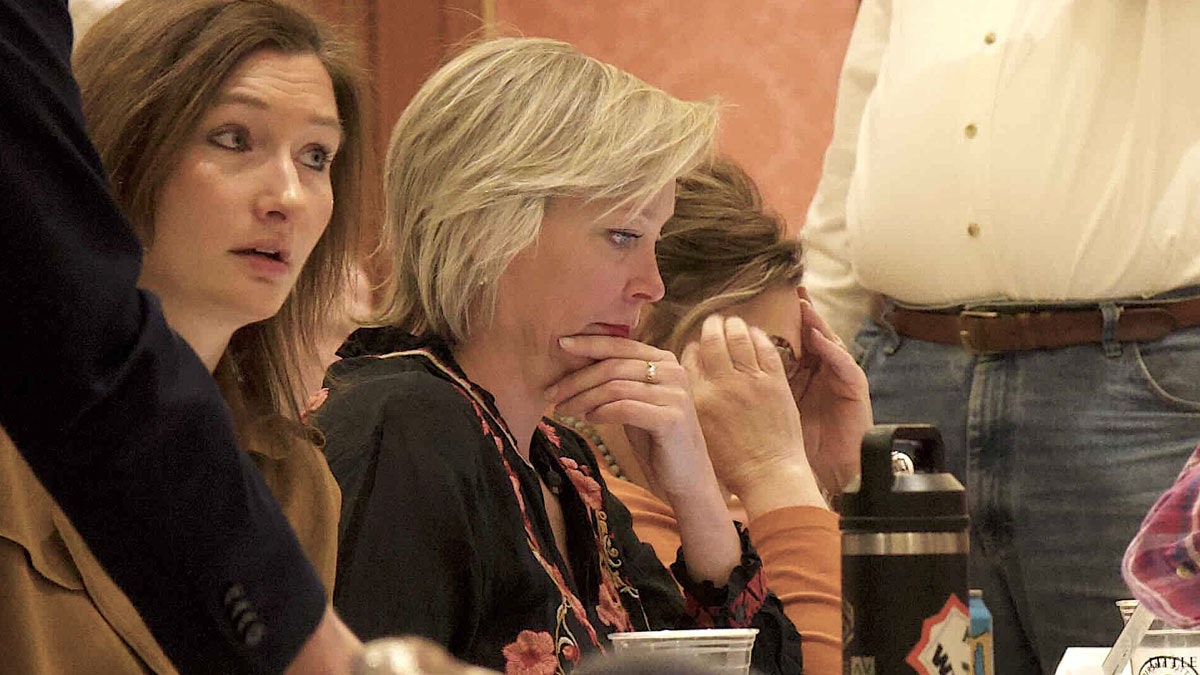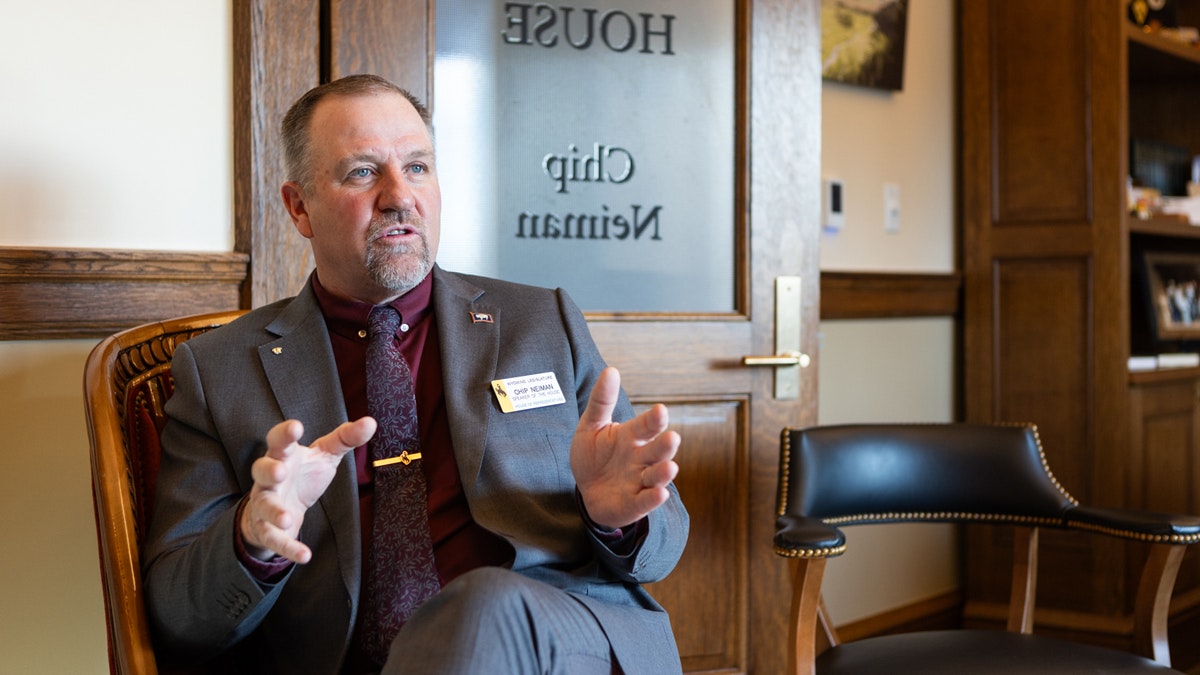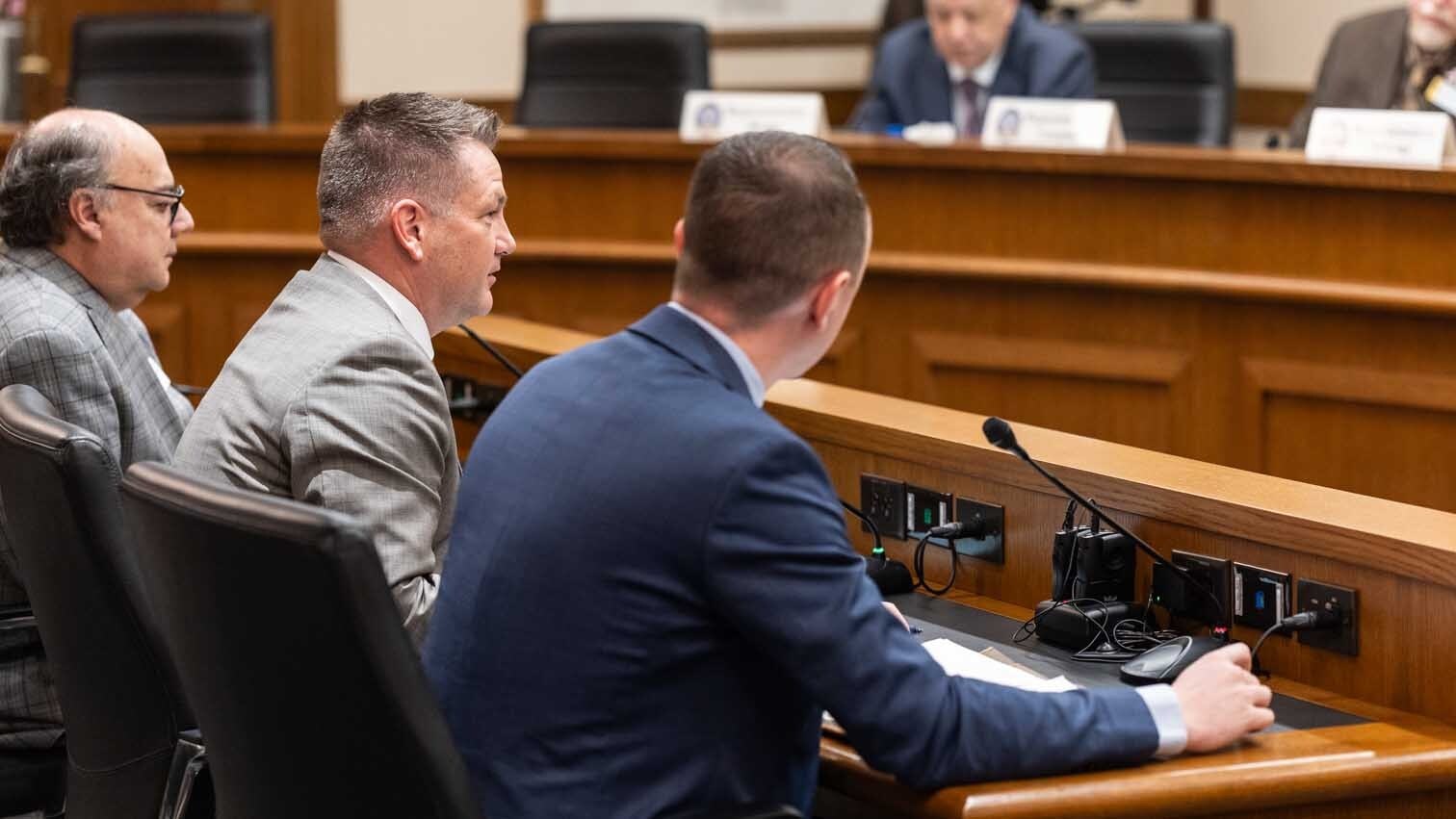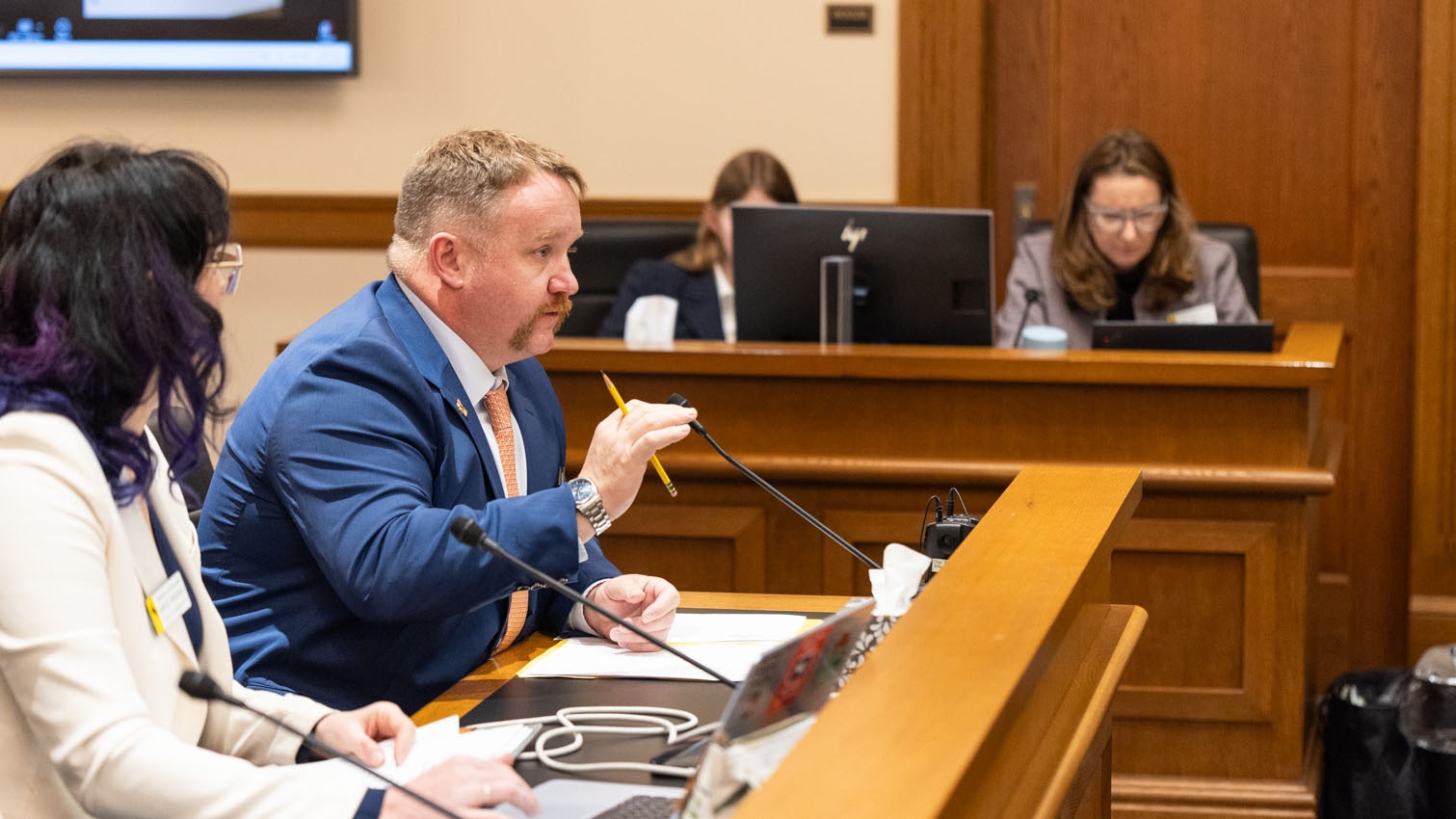By Leo Wolfson, State Politics Reporter
Leo@Cowboystatedaily.com
Certain groups of Wyoming Republicans are continuing their campaign against the federal Respect for Marriage Act, but that hasn’t caused U.S. Sen. Cynthia Lummis, R-Wyoming, to reconsider her stance in supporting the bill last week.
On Tuesday, 26 members of the House Freedom Caucus, Wyoming Treasurer Curt Meier and Secretary of State-elect Chuck Gray signed a letter imploring U.S. Sens. John Barrasso and Lummis to vote against legislation that would codify same-sex marriage into federal law and require all states to recognize same-sex marriages performed in other states.
“This bill is an attempt to take away our constitutional rights, guaranteed by the Bill of Rights,” the letter reads. “This legislation poses a threat to law abiding citizens.”
Vote That Started The Backlash
The letter comes in the wake of Lummis’ vote last week to support bringing the legislation to a vote.
“Ultimately, I am guided by two things – my duty to uphold the Wyoming Constitution and my view to ensure strong religious liberties for all under the Constitution,” Lummis said in a Monday statement.
The Freedom Caucus letter describes her vote as an “attack on our Wyoming values” and asks Lummis to “look at the longstanding traditions, laws and platforms of your party in your home state.”
Wyoming prohibited recognition of same-sex marriages in 1977 and enacted a more explicit ban in 2003. In 2014, a federal district court found the state’s ban on same-sex marriage unconstitutional.
Barrasso voted against the Respect for Marriage Act, citing his longstanding policy opposing same-sex marriage.
Lummis Doubles Down
In a Monday letter to constituents, Lummis stood behind her support for the Respect for Marriage Act.
She mentions how as a Christian, her faith teaches that marriage is limited to between a man and a woman, but her conservative constitutional background gives her a belief in the separation of church and state.
“The decision to support this bill was one of the most difficult I have had to make in Congress,” she said. “Finding a balance that honors both of these beliefs has been a challenge, but one I believe the Respect for Marriage Act achieves.”
Religious Freedom
A 2014 Pew Research poll showed that 79% of Wyoming residents at the time believed same-sex marriage should be accepted. There are three openly gay members in the Wyoming Legislature.
Lummis has mentioned the Wyoming Constitution and ensuring of religious liberties as key points behind her backing of the bill. She views that it is the strongest protection of religious freedom legislation enacted since the Religious Freedom Restoration Act in 1993.
“As a Christian and a constitutional conservative, ensuring the religious liberties of people in Wyoming are strongly protected, that no one is forced to perform a marriage ceremony or that no religious institution is forced to employ an individual not in line with their values is absolutely essential,” Lummis said.
What The Law Says
The Wyoming Constitution establishes in Article I, Section III that, “Since equality in the enjoyment of natural and civil rights is only made sure through political equality, the laws of this state affecting the political rights and privileges of its citizens shall be without distinction of race, color, sex, or any circumstance or condition whatsoever other than individual incompetency, or unworthiness duly ascertained by a court of competent jurisdiction.”
The Respect for Marriage Act, House Resolution 8404, would prohibit any state from refusing to recognize an out-of-state marriage based on sex, race, ethnicity or national origin, regardless of individual state laws. It also would grant the U.S. attorney general authority to enforce the rule through civil action.
An Attack On Freedom
The Freedom Caucus letter says the legislation is an attack on freedom of religion and the First Amendment, claiming Christian-owned businesses and religious institutions will be “forced to confess what they do not believe.”
It says the Respect for Marraige Act “redefines marriage in ways that no society in world history has ever dared,” mentioning that in the bill’s verbiage, those who do not give “full faith and credit” to same-sex marriage can face federal prosecution.
The letter carries a similar sentiment to a press release put out by the Wyoming Republican Party in the wake of Lummis’ vote.
“Freedom of religion, and the free exercise thereof, included the right to abstain from actions contrary to one’s religious beliefs,” the press release reads.
Legal, Not Personal
Rep. John Bear, R-Gillette, chairman of the Freedom Caucs, told Cowboy State on Wednesday morning that although he personally opposes same-sex marriage on face value, the letter comes more out of a concern for civil and criminal lawsuits that could be brought against people accused of violating the act.
“The legislation is not necessary,” he said. “It’s a threat for freedoms and liberties.”
But an amendment has been made to the bill, adding language ensuring religious protections, specifying that all nonprofit religious organizations will not be required to provide services for the solemnization or celebration of a marriage. Standard businesses are not mentioned in the amendment.
In 2020, the U.S. Supreme Court determined The Civil Rights Act of 1964 forbids employment discrimination on the basis of sexual orientation or transgender status. In 2018, the high court ruled that a Colorado baker who refused to make a wedding cake for a gay couple was lawful in that decision, based off his citing of religious beliefs in refusing service.
In response to the religious freedom amendment to the legislation, The Church of Jesus Christ of Latter-day Saints came out in support of the legislation, issuing a statement last week that the legislation “includes appropriate religious freedom protections while respecting the law and preserving the rights of our LGBTQ brothers and sisters.”
Bear said even with this amendment, the legislation still tramples on religious freedoms and liberties.
“The amendment is not enough,” he said.
Republican Platforms
On Monday, U.S. Transportation Secretary Pete Buttigieg cited positions of the modern Republican Party as tools of ammunition used against the LGBTQ community and a contributing factor to hate crime events like the recent Colorado Springs shooting.
But not all Republicans are opposed to the Respect for Marriage Act. In addition to Lummis, 11 other Republican senators supported it.
Rep. Landon Brown, R-Cheyenne, said he stands with Lummis’ vote. He said he understands the Freedom Caucus’ argument, but doesn’t agree with it.
“I think it should be codified,” he said. “I don’t believe it’s a state’s rights issue.”
He commended Lummis, who he said he doesn’t agree with often on policy, for looking past her religious beliefs to do what she thinks is right in the eyes of the law. Brown said he expects a bill in this year’s State Legislature attempting to fight this federal legislation.
Far-right conservative commentator Ben Shapiro said Monday that the amendment is not enough and advocated for an amendment proposed by Sen. Mike Lee, R-Utah.
Same-sex marriage is already allowed nationwide as a result of the Supreme Court’s 2015 decision that the Constitution guarantees same-sex marriage rights. Lummis said in her Monday letter that she does not agree with that decision.
“I think that case was wrongly decided since the United States Constitution says nothing about marriage in the constitutional text and marriage is a predominantly state issue,” she said.
States v. Feds
Although Wyoming adheres to this decision, Bear expressed concern that Wyoming would be required to follow a codified federal law on the matter and forced to recognize marriages granted in other states.
“I don’t think Congress should be enacting law that takes away rights from the states,” Bear said.
He also worries that California will take an extremely loose interpretation of the law, allowing adults to marry children and other non-traditional marriages beyond the union of two adults.
“There isn’t a limit to what could happen,” he said.
The Freedom Caucus letter served as a sneak preview to the new membership tally of this conservative bloc, including the signatures of 16 incoming members of the Wyoming Legislature.





